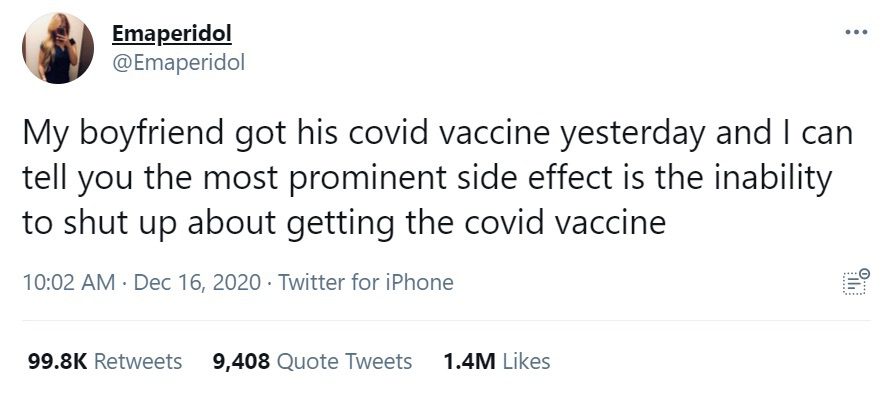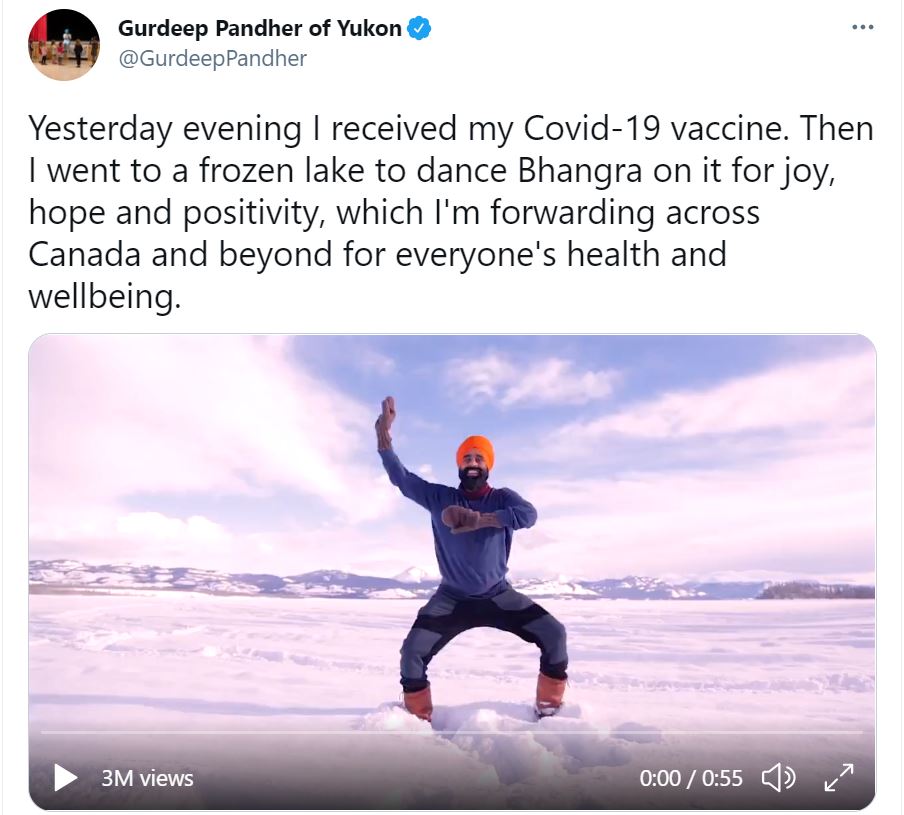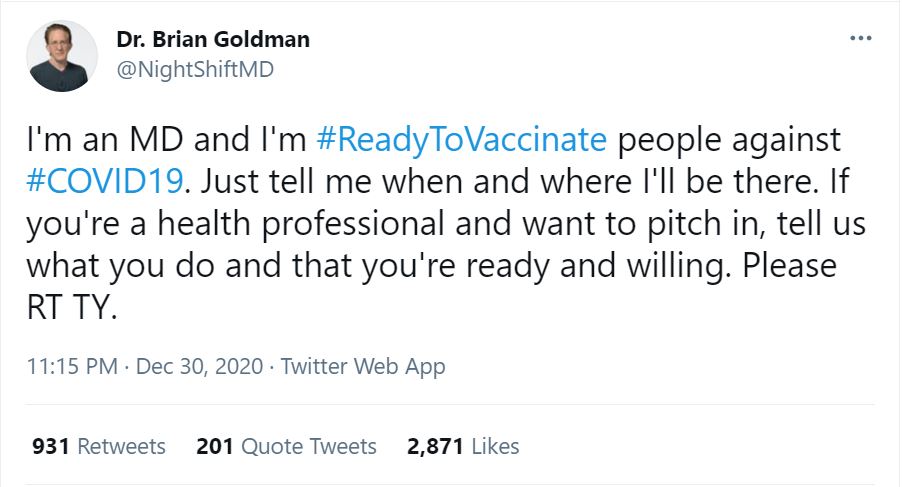Over the past 30 years, Marvin Gelkopf has built a practice of 2,000 patients in Toronto’s North York and prides himself on knowing all of his patients’ names. As a community family doctor, Gelkopf was among the first to receive a COVID-19 shot. Asked to describe his reaction, he responds: “Physically or emotionally? … It’s a very emotional topic for most of us.”
Gelkopf is not alone. Health-care providers who have been vaccinated against COVID-19 describe not just the physical side effects, which were mostly mild and short-lived, but also the emotional reaction of helping to prevent a disease that has plagued them for the better part of the past year.
“It’s hard to express what a huge deal this was for us to finally have some sort of effective personal protection,” says Guy Shochat, an emergency care physician at the University of California San Francisco. “This is an amazing thing.”
To Gelkopf, Shochat and many other health-care providers, vaccination offers a sense of relief and hope. “I think hope might have been my biggest side effect. I was really excited,” says Lacey Robinson, an allergist and immunologist at Massachusetts General Hospital in Boston.
After a year of battling COVID-19 on the front lines and dealing with the personal struggles of life in lockdown, the sense of excitement in the medical community has been extraordinary. “(It) changes the way that I get to look into the future and feel a bit better about this particular calendar year,” says Karen Swirsky, a family physician at St. Michael’s Hospital in Toronto. “I’m very happy to be on the other side of the full course (of this vaccine).”
When asked why they wanted to be vaccinated, health-care providers talk about protecting their patients as well as the community at large, pointing to the impact that the pandemic has had on society. Many have had first-hand experience treating COVID-19 patients and describe the fear of exposing themselves, their families and their patients.
To them, vaccination provides security, an extra layer of protection on top of the standard gloves, masks and face shields. On treating patients in his North York neighbourhood, which one patient said was “dripping with COVID” a few months ago, Gelkopf says: “I don’t use the term lightly when I say I felt like I was dodging bullets.”
Many health-care workers emphasize their confidence in vaccines despite recent surveys suggesting that some may be hesitant to roll up their sleeves. Such endorsements are especially important given research suggesting that physician recommendation is one of the strongest factors influencing vaccine decisions.
Some clinicians acknowledge that watching the vaccination roll out among their colleagues and in other countries first offered some reassurance. “I wasn’t upset to learn that there would be other people ahead of me in line,” says Gelkopf. “Six million people in the U.S. got it before I did. That actually made me a little more reassured.” A “healthy skepticism,” echoes Shochat, who describes his decision as “a no-brainer” and an “obvious choice.”
With new evidence indicating that booster shots may be needed to curb emerging variants, this high level of vaccine confidence will need to be sustained for some time. “I would happily get an email tomorrow to say that we need another vaccine in 21 days. I would sign up right away to make sure that my quest is complete,” says Swirsky.
When asked about the safety of COVID-19 vaccines, health-care providers cite their trust in science and the rigorous testing process for products that will be administered to millions of healthy people. Shochat describes the science behind the vaccines, including the new mRNA technology, as “profoundly elegant,” adding that he is amazed by how effective the vaccines are. “Weighing the potential complications of what appears to be a very safe vaccine versus the known expected complications of a very complicated virus,” says Shochat. “There’s just no balance there.”
Adds Robinson, from Boston: “Sometimes I think as scientists we get caught up in the technicalities. We get caught up in sharing all the exact information and details and we sometimes lose our bigger message, which is that we’re excited, and this is great, and this is a potentially wonderful opportunity … Our overall message is that these vaccines are remarkably effective.”
Despite his overall enthusiasm, Gelkopf expresses frustration over vaccine procurement and distribution delays, in particular for his high-risk patients living in the community, some of whom are in their 80s or 90s. “There’s a lot of frustration that the wheels aren’t turning fast enough. We need it faster. We need it faster,” he says.
Ontario expanded its vaccine eligibility on March 23 to include older adults in the community and other priority groups such as Indigenous people, those living in communal settings such as shelters and an expanded list of health-care workers. Pharmacies and some doctors’ offices are also now able to administer vaccines.
Family doctors are eager to help with those efforts. Gelkopf set up an outdoor tent in the laneway adjacent to his clinic this past summer to administer flu shots. He boasts he was able to give 250 shots per day. The hashtag #ReadytoVaccinate has been trending on Twitter since early January.
As many health-care providers see it, the COVID-19 vaccines will turn out to be a game-changer for public health. “There’s something very unique about the COVID-19 vaccine that you can’t compare to (other vaccines),” says Gelkopf. “This is not a flu shot. This is not an MMR (measles-mumps-rubella vaccine). This is not a shingles shot. This is going to save lives.”





The comments section is closed.